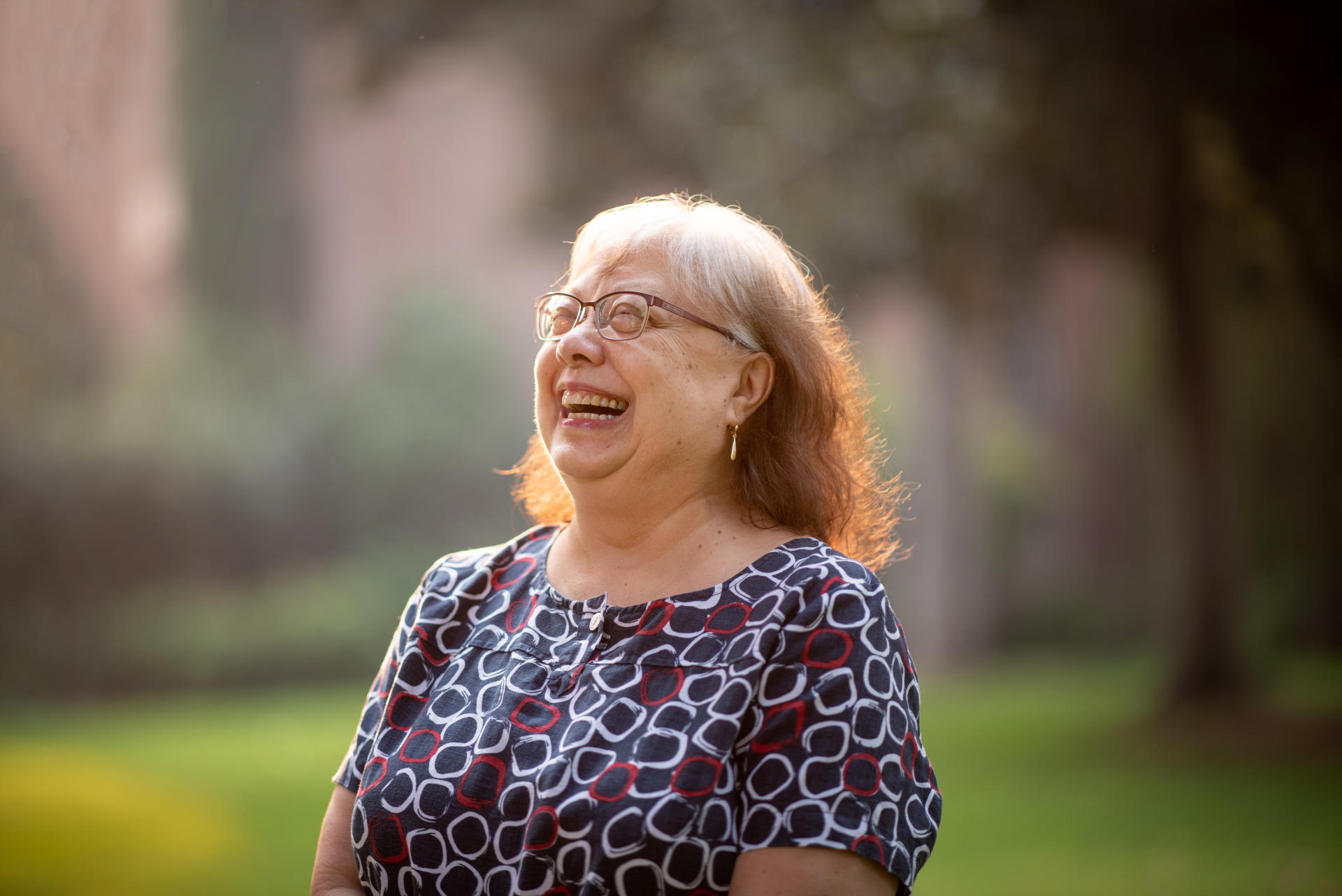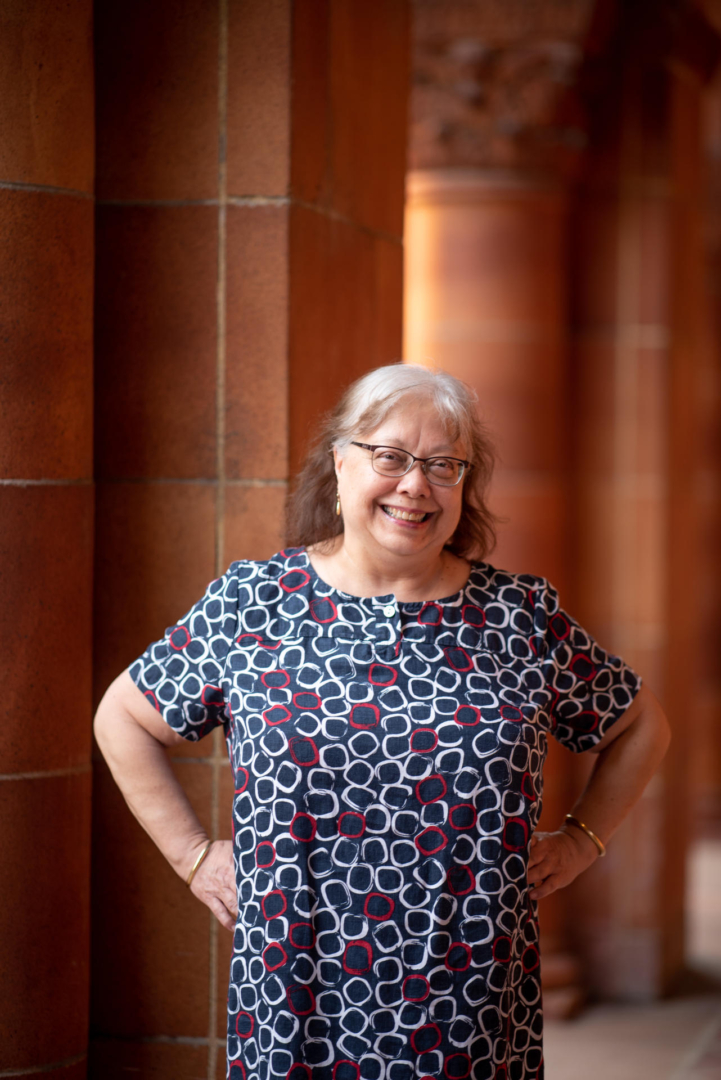Retired Attorney Educator Leaves Legacy of Transforming Generations

Teddy Delorenzo (78) retired in May after 38 years as an attorney with CLIC and was really its driving force. Teddy DeLorenzo graduated from CSU, Chico in 1978. She was an intern and student director in the CLIC program. After graduating, Teddy attended law school at the New College of Law in San Francisco. She is the one person who has had the biggest impact in keeping CLIC open and improving for our students and clients since the 1980’s. Teddy is photographed on Thursday, October 1, 2020 in Chico, Calif. (Jessica Bartlett/University Photographer/CSU, Chico)
This is one of four profiles marking the 50th anniversary of the Community Legal Information Clinic. As each alumni lawyer can attest, the program fosters a love of law that often leads to thriving careers. All of the profiles can be accessed in our 50-year tribute.
After completing her law degree and beginning a career as an attorney, Teddy DeLorenzo discovered the thrill of the courtroom did not match the magic of the classroom.
So when her former professor Ed Bronson called her shortly into her first law job to gauge her interest in teaching, she was excited to return to Chico State. Little did she know how impactful her influence would be—in the next 38 years, she would not only transform the lives of thousands of students but give them the foundation to change lives of countless clients for decades to come.
“I love to learn, and teaching gave me a way to pass that love to others,” she said.
DeLorenzo (Political Science, ’76) began her legacy in Chico State’s Political Science and Criminal Justice Department in 1982, teaching courses like “Law, Politics, and the Distribution of Justice,” “Civil Rights and Liberties,” and (her favorite) “Legal Research and Writing.” She was also appointed to a dual role as a CLIC faculty advisor, marking her return to the program where, as a student, she was an intern and student director in the Housing Law program.
Her interest in law sprang from childhood observations, when her parents owned a store downstairs from a legal aid attorney and she was fascinated by how he helped people.
“It was something I hadn’t really considered,” she recalled. “When I got to college, something clicked about how the law could be a tool for the positive.”
In addition to her work in the classroom, as CLIC’s supervising attorney, DeLorenzo used her expertise from the law degree she earned at the New College of California, School of Law and two years in nonprofit practice to guide, advise, and shape thousands of students as they provided information to clients.

Forging tight-knit bonds with countless interns, she embraced the role of mentor, especially to a growing demographic of women and students of color. As a Japanese-Italian woman, she empathizes with being historically underrepresented within the discipline.
“I had one Hispanic student ask me, ‘I know we’ve only had one class and CLIC together, but I don’t know anyone else to ask questions to about law school or career paths—will you do that for me?’” she said. “I said, ‘Absolutely, I will.’”
DeLorenzo worked daily with CLIC’s student interns to teach them how to navigate administrative issues with their peers, while also helping research questions for clients, examine legal details, and sort through intake sheets.
For her dedication, she received the University’s Outstanding Faculty Service Award for 2012–13. Humbled by the recognition, she reiterates her drive to simply help others. That generous spirit extends far beyond the classroom, as DeLorenzo contributes her expertise to efforts like Camp Fire response, where she staffed a legal aid table to help survivors who’d suffered losses—including Chico State students.
“We were trying to help and support them and their families who’d lost their homes and businesses, while they’re also trying to get classwork done,” she recalled. “It was just chaos.”
Working with students always meant more to DeLorenzo than helping litigate legal disputes. She inadvertently taught life skills and problem-solving that could be applied in virtually every career—including those outside the courthouse.
One of her biggest payoffs, she reflects, was witnessing quiet, shy interns gain confidence and transform into curious students who asked thoughtful questions, provided detailed answers, and became more involved—ultimately directing CLIC programs of their own.
“I don’t take credit for all of their success,” she said. “But I like to feel that my support and encouragement has contributed to their growing confidence.”


